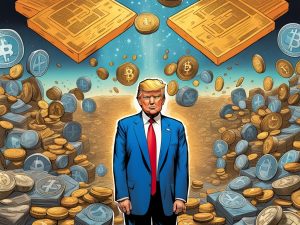Inaccurate Interpretation of Torres Decision
Esteemed crypto lawyers John Deaton and Mike Selig have joined forces to address the misinterpretation of the Torres Decision regarding XRP and security laws. Deaton expresses concerns about deliberate misstatements made by individuals, including politicians like Brad Sherman, to promote false narratives and government control over financial markets.
XRP is Not a Security
Mike Selig clarifies that XRP itself is not a security, but it can be sold as part of a security. He compares XRP to tangible commodities like gold or whiskey, which can be included in investment schemes subject to securities laws. The crucial condition for these laws to be applicable is the presence of a contract, transaction, or scheme where investors expect profits from others’ efforts.
Crypto Assets as Investment Contracts?
Selig challenges the notion that a commodity can be considered a security and highlights that Judge Torres’ interpretation aligns with legal precedents. He argues that crypto assets cannot inherently be investment contracts, as other courts have also concluded.
Identifying Regulatory Gaps
Selig points out a regulatory gap in crypto-asset transactions and emphasizes the need for legislative action. While most crypto transactions do not breach securities laws, there is a need to establish new regulations for crypto assets. The SEC’s interpretation that crypto assets become securities when sold to certain investors conveniently covers this regulatory void, but proper legislation is necessary for the SEC’s jurisdiction.
Hot Take: XRP is Not a Security, but Regulatory Action is Needed
The Torres Decision clarifies that XRP is not a security, but can be sold as part of a security. However, there is a regulatory gap in crypto-asset transactions that requires legislative action. While the SEC’s interpretation covers the existing void, it lacks proper jurisdiction without legislation. The crypto industry needs clear regulations to ensure compliance and foster innovation.





 By
By
 By
By
 By
By

 By
By
 By
By